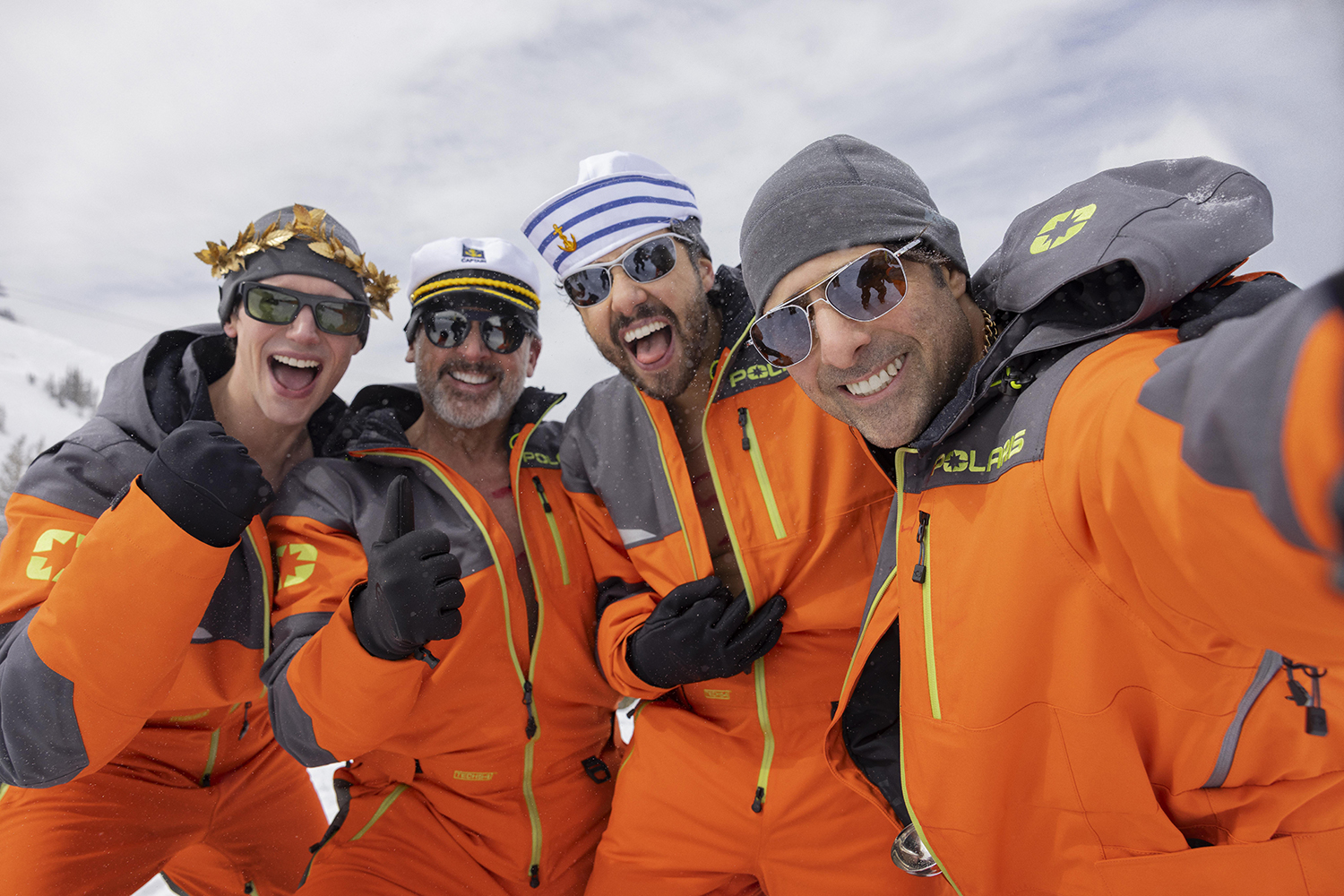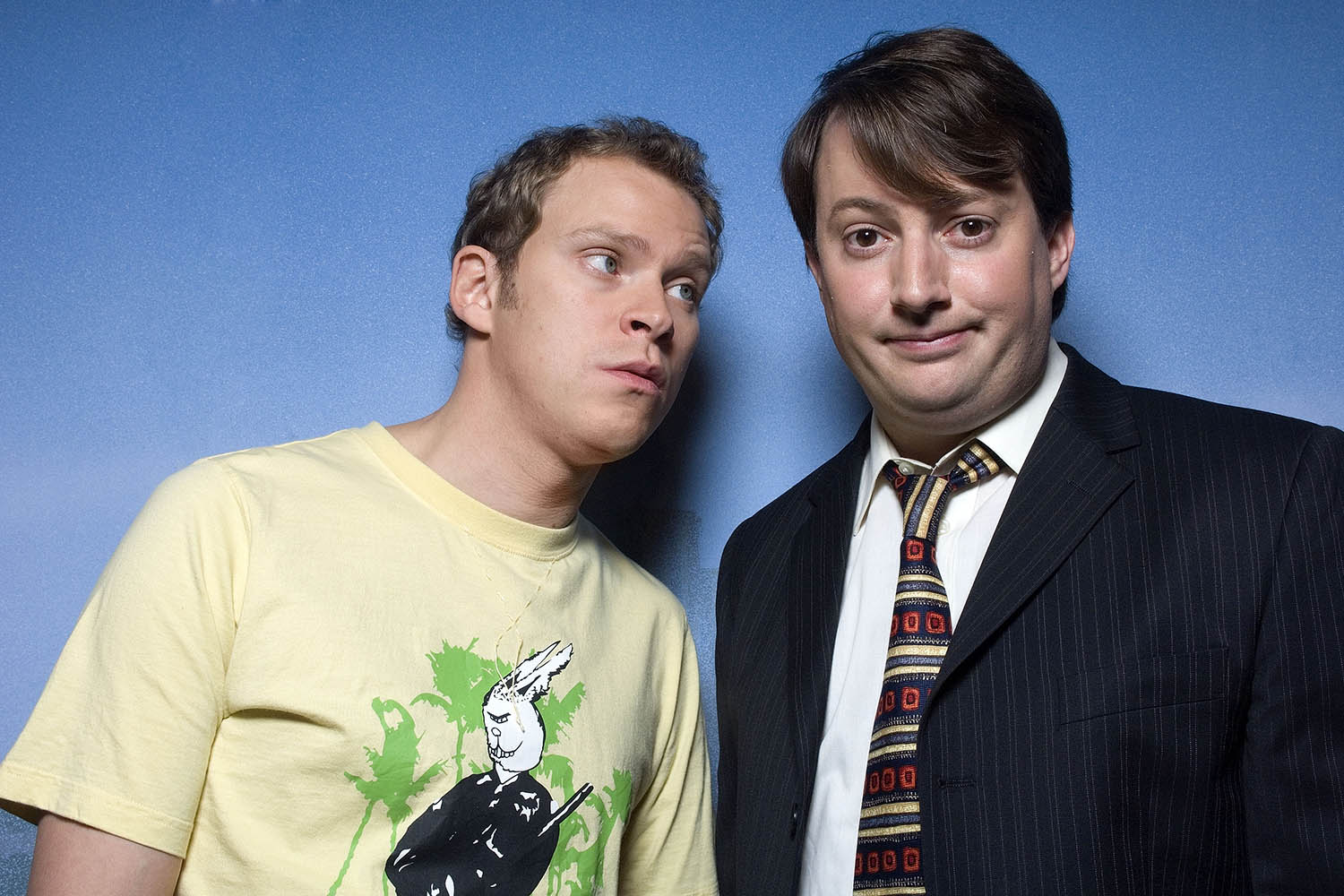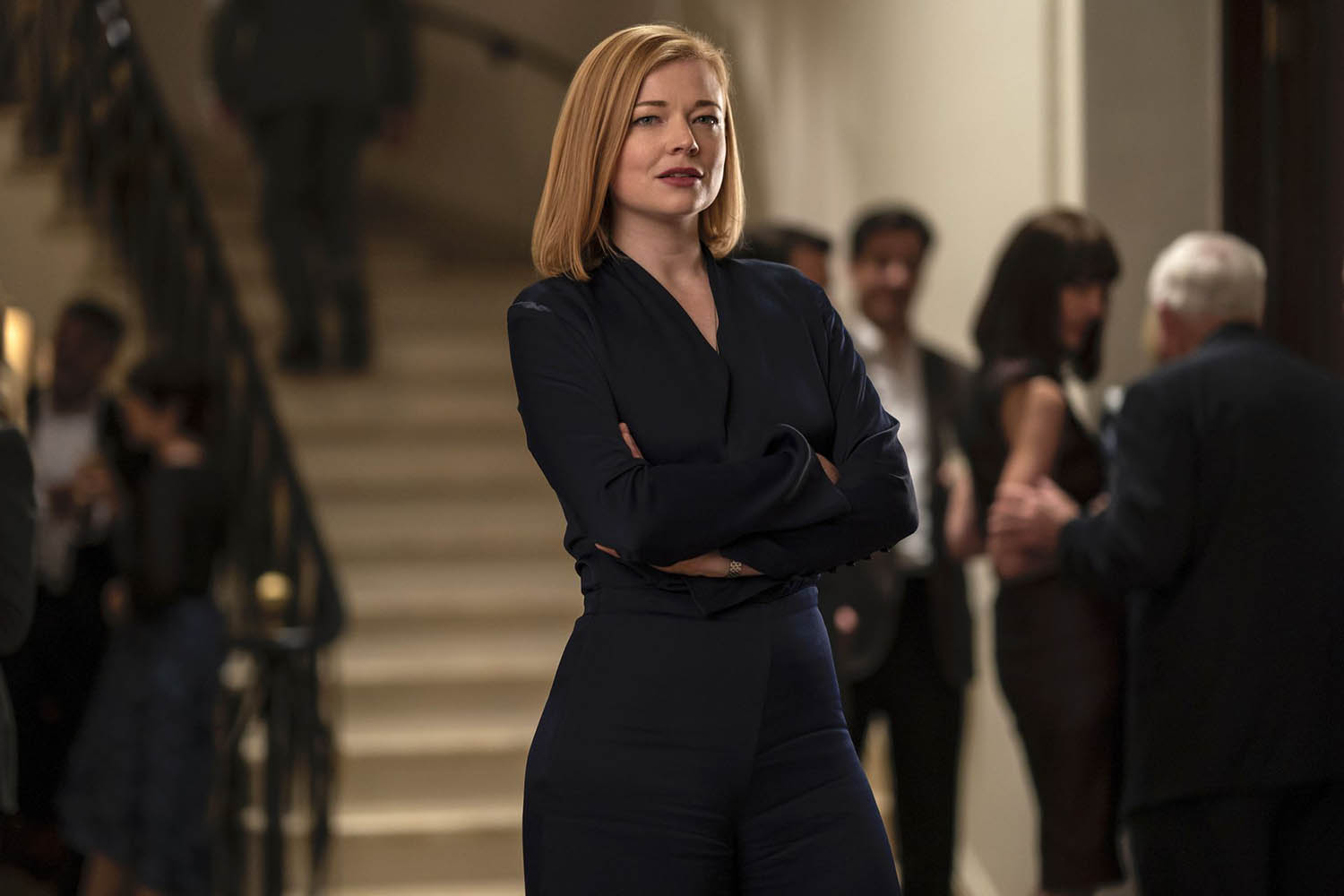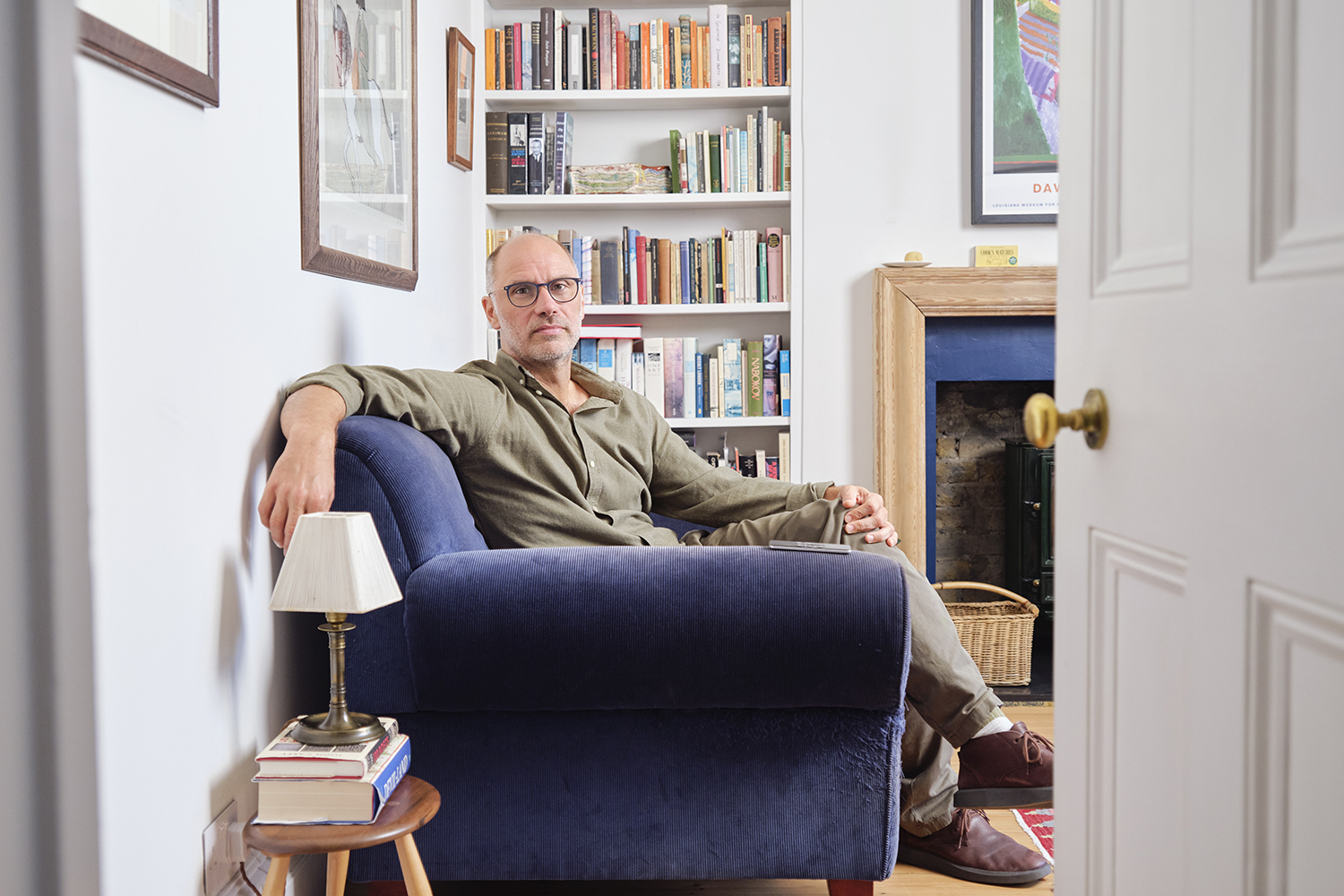Where you go from the top is a question that very few writers ever have to confront. The typical struggle is all about trying to get there, attempting to do something that is original, memorable, critically acclaimed and commercially profitable. What happens afterwards is, in nearly all cases, deliriously notional, because that kind of overarching success is so seldom realised.
But two years ago, when Jesse Armstrong brought to a close the triumphant fourth and final season of Succession, his satirical drama about a warring billionaire media family, the road ahead was one he could survey from what was by any reckoning an industry pinnacle. Exhausted after the efforts of showrunning the whole enterprise, he told me at the time that he didn’t know what his next move would be. Although he had a few ideas, he just wanted to take some time off and return to some kind of normality.
Then in January this year, the 54-year-old began writing a feature film that he quickly went on to direct. Having explored the super-rich in such brilliantly scathing fashion, he had now turned his attention to... the super-rich. Again. Mountainhead, which was filmed in March, and previews on Sky Atlantic, is a story about four tech bros who meet at the eponymous mountain retreat to share a night of fun and relaxation.
Beyond this vast and well-protected eyrie, owned by Souper (Jason Schwartzman), the least wealthy of the foursome, the world is undergoing a series of violent convulsions as a consequence of a new app released by Traam, a company owned by another member of the group, Venis (Cory Michael Smith). It features AI software that creates convincing fake images and the kind of false newsreels guaranteed to provoke civil unrest. As the weekend unfolds, a power struggle ensues within the house, as some of the group persuade themselves that they should take over global governance.
The obvious question is that, having scored a bullseye on the billionaire class, what made Armstrong want to return to the same subject with his very next project?
“Yeah,” he says, shrugging on a video call from New York, “maybe if I’d sat down with an agent and strategised, I might have done something different. But I think Succession was a show about media power, really, and this is a show about tech power.”
You could go further and say that Succession was about the waning of old media power, an elite that has been supplanted in many respects by big tech and its new media platforms. The point Armstrong makes is that power is his concern; fabulous wealth just comes with the territory.

Cory Michael Smith, Steve Carell, Ramy Youssef and Jason Schwartzman in Mountainhead
Although it’s a reasonable point, many viewers may struggle to distinguish Mountainhead’s lavish material trappings and slangy deadpan dialogue from Succession, even if the new film is not as acute in its social observations or as achingly funny in its character interactions.
For Armstrong, tone has always been the creative key, from the early Peep Show days right up until now. As he once put it: “The hardest thing to get right in any work of art, and certainly in a TV show, the single most essential and ineffable thing you’re looking for is a tone.”
He realised he was interested in getting his teeth into the world of big tech after he read Michael Lewis’s book about Sam Bankman-Fried, the cyber-currency entrepreneur who is serving a 25-year sentence for fraud. Armstrong followed up with a small library of biographies of other tech giants, and he’d also written the Lukas Matsson (Alexander Skarsgård) character in Succession, widely thought to be modelled on Spotify’s Daniel Ek.
Newsletters
Choose the newsletters you want to receive
View more
For information about how The Observer protects your data, read our Privacy Policy
But it was after listening to podcasts featuring major tech figures that Armstrong found that he couldn’t get their tone of voice – “completely culturally dominant and self-confident” – out of his head. One satirical challenge is that it’s this voice that occupies all of our heads in one way or another. Whether it’s Elon Musk giving faux fascist salutes or pontificating on X, or Mark Zuckerberg sloughing off any pretence of progressiveness and celebrating the “masculine energy” of Trump 2.0, these people are at the forefront of our culture. So it’s hard to hit them anywhere but on the nose.
We know that Ayn Rand, the defender of ethical egoism, is their favourite philosopher: one character asks Souper whether the name of his Alpine mansion is a reference to The Fountainhead, the novel that is Rand’s paean to world-shaping individualism. We know that they’re obsessed with space travel and immortality: the eldest and straightest of the four, Randall (Steve Carell), has terminal cancer and is desperate to live long enough to have his consciousness uploaded. And we know that, by virtue of their algorithmic domination, they think they have all the answers to humanity’s problems.
It’s in the gap between this stance of presumed omniscience and the flawed execution of ideas beyond their remit (see Musk and his Doge excursions) on which Armstrong focuses his caustic imagination. “As a comedy writer, your antennae prick up at the lack of self-knowledge, the arrogance of misapplying your expertise to another area. It felt richly comically available.”
The characters in Mountainhead talk of the future in grand terms, it’s post-Earth, transhuman possibilities.
“I just feel if, like, if I can get us off this fucking rock, it would solve so much,” says Venis at one point.
“Well, you know, it’s a solid starter planet,” replies Randall, “but we’ve outgrown it.”
We don’t need to ask if tech bros really talk like this because it sounds almost like verbatim Musk. This familiarity makes them a ready target but, paradoxically, not one that’s easy to hit, at least in a way that counts.

Armstrong, centre right, with Youssef, Schwartzman and Carell on set
Armstrong is particularly alert to the tech bro tendency to take philosophical principles to their logical conclusions.
“That can have terrifying consequences in the real world but is also very funny,” he says.
He cites as an example the effective altruism movement that took Silicon Valley by storm. The idea was to become as wealthy as possible so as to increase human wellbeing through philanthropy.
“Musk said it was a pretty close fit for his philosophy and Sam Bankman-Fried had lots of plans for effective altruism, but I think it’s pretty hard to get the receipts for when he was actually doing the giving.”
He laughs, and then stops himself.
“I don’t wish to dismiss all these people’s desire to give money,” he says, “but you get into some extremely funny but also potentially unpleasant areas when you start calculating future lives. Suddenly, the current lives are worthless compared to the compounded multiples of subsequent lives that might be affected.”
The characters in Mountainhead frequently invoke these non-existent future lives as justification for their actions, but also are rather disdainful of the actual masses out there beyond their luxurious seclusion.
“Do you believe in other people?” Venis asks Randall. “Eight billion people as real as us?”
“Well obviously not,” Randall sniggers.
It’s hard to imagine that exchange taking place in Succession, for all the disdain shown by the main characters towards the “normal” people. The criticism that was often made about that show by its detractors was that the characters were unlikable. Well, yes, perhaps, but they nearly all held out the promise of some kind of act of redemption, a spark of courage, a moral stand, or at least an appreciation of the absurd, none of which ever quite delivered them from their lust for power. The characters in Mountainhead are no more likable, but they do appear more monstrously un-self‑reflective.
Armstrong has in the past quoted James Thurber’s belief that “there is 1,000 miles of desert between a good cause and a good play. Few people cross it alive”. The Englishman is far too subtle a thinker and talented a satirist ever to place a cause in front of the comedy, but it’s fair to say that Mountainhead is a much balder exposition of the themes of entitlement and unaccountability than Succession.
That’s partly explained by the fact that it’s a feature film with a much more compact form, but it also may have something to do with the speed with which it was made. To begin writing a film in January and have it on screen by June is almost unprecedented, especially when it involves a major star like Carell, who doesn’t tend to be available at short notice.
Armstrong says he didn’t write the part specifically for Carell but he was the first person he asked, and his agreement was, he says, “a pretty big deal”.
“My pitch was to do it as quickly and cheaply as possible, so that it didn’t feel like a great millstone around my neck,” he says.
That’s a pronounced departure from the old auteurist way of doing things, in which length of time and overspend of budget were taken as signs of a master at work. When I suggest that his location of the action within the confines of a super-mansion was a personal motif, echoing the way Succession played on claustrophobic luxury to increase tension, he’s quick to deny any such intentions.
“No,” he says, matter-of-factly, “not consciously. The unity of place and time and characters came out of budgetary necessity rather than a philosophical thing.”
And the haste, he says, came from the urgency of wanting an audience “to be feeling the same sort of feelings I’m feeling”.
“I’d also not directed before and there were lots of technical aspects I was anxious about,” he adds candidly. “I knew that [given more time] I’d stew and try to read all the books I could and probably watch online tutorials about great directors and go into waves of anxiety about being able to do it.”
Again, although it’s said with a lot of characteristic self-deprecating humour, it’s not a tremendously Hollywood admission. In the film industry, not unlike the tech world, overweening self-belief is the standard operating procedure.
Armstrong is too subtle a thinker and talented a satirist ever to place a cause in front of the comedy
Armstrong is too subtle a thinker and talented a satirist ever to place a cause in front of the comedy
It’s hard to think of anyone else who, having made the most lauded TV drama of the past decade, would be so forthcoming with self-doubt. But he’s earned the confidence that HBO, the outfit behind Succession and Mountainhead, has shown in him. And while he was a veteran of the manifold responsibilities that came with being a four-season showrunner, there’s a case to say that being the lone writer-director of a film is a heavier burden.
It’s just not a case that Armstrong is interested in making. The two roles, he says, were not that different. He felt the absence of a major collaborator like Mark Mylod, who directed many of Succession’s key episodes, but he assembled a host of executive producers from the Succession team, including Mylod, Lucy Prebble, Tony Roche, Jon Brown, Will Tracy and Frank Rich, to help test his ideas. Each day one or other of them would make the effort to get along to the set.
“So they came in a kind of merry-go-round out to Utah [where the film was shot],” he says.
He liked to have one of this team standing with him at the monitor to help confirm whether he had a successful take of the scene they were shooting.
“Having somebody who’s not going to bullshit you is a big help,” he says. “I mean, they’ll probably bullshit me a little bit and say ‘that was great’, when it was just fine. But at a certain level, a friend has to be honest, and so I kept that crutch of creative friends around me.”
As if to dispel the idea that the crutch was necessary rather than a reassuring addition, he adds: “There are lots of things I didn’t know about directing, but I knew in my gut what the thing should be, and when I saw it, I knew I was getting it.”
Whether critics and audiences feel the same way remains to be seen. One thing we know is that almost nothing is judged in isolation. Mountainhead isn’t just another TV feature film with a cinematic approach. It’s the debut film of the man who made Succession, and inevitably it will be compared with that achievement, particularly as it shares such a strikingly similar milieu. What’s also certain is that no one will take into account its compressed schedule, which, as Armstrong notes, was half or even a third of the time “that would be normal for anything really good”.
Has the experience left him itching to take to the director’s chair again?
“A bit,” he says, making the bit sound like one he’s not exactly champing.
He’s first and foremost a writer, and while he can imagine directing something he writes that is character-focused, “there are other things that I’d be really delighted to hand to other people because I know that I need the collaborator or technical skill to achieve them”.
Forget the sound sense of that observation, it’s the humility and honesty with which he expresses it that’s most striking. Those are not qualities that are renowned for commanding respect in his chosen profession. That he’s been able to thrive while maintaining them may say more about him than even his highly impressive list of credits.
If he’s not rushing towards the next director’s job, would he consider the multi-year undertaking of another TV series on the scale of Succession, or is doing it once in a lifetime more than enough?
“Being back in New York [where much of Succession was made], it feels like it was a different human being who did Succession, and that isn’t even that long-running a show. It’s very all-consuming but I think, hopefully, I might have one more go at it in me...” he says, and then, before fans can get too excited, he adds a cautionary clause, “...but certainly not for a while.”
Armstrong’s TV hits
Smack the Pony (1999-2003)
The before-its-time sketch show starring a trio of female comedians had a team of writers who would eventually go big, including Armstrong, Richard Ayoade and John Oliver.

Robert Webb and David Mitchell in Peep Show
Peep Show (2003-2015)
The beloved dark comedy about two misfit flatmates was the start of Armstrong’s long history of working with its stars, David Mitchell and Robert Webb, as well as the series’ co-creator Sam Bain.
The Thick of It (2005-2012)
Armando Iannucci’s series satirising the machinations of the British government – the recipient of five Bafta awards – had a writers room that frequently included Armstrong.
Four Lions (2010)
Directed by Brass Eye creator Chris Morris, he, Armstrong and Bain wrote the script for this film about the farcical attempts of a group of British Pakistani jihadis to plan a terror attack in Sheffield.
Fresh Meat (2011-2016)
Bain and Armstrong’s series about a group of students in a houseshare featured their by now familiar combination of pitch black humour and surprisingly emotive punch.

Sarah Snook as Siobhan Roy in Succession, which won 19 Emmys across four seasons
Succession (2018-2023)
The behemoth HBO series about siblings vying for control of their father’s media empire won 19 Emmy awards, including the outstanding drama award for each of its four seasons.
Photographs by Amit Lennon; Macall Polay/SMPSPHBO; Channel 4; HBO



